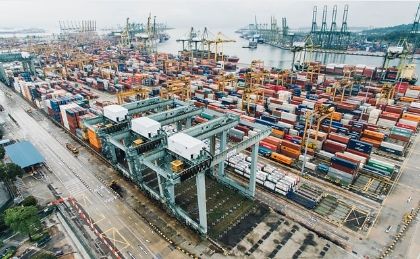What are Import and Export Duties and How Do They Affect International Trade?
Import and export duties are taxes levied by governments on goods as they enter or leave a country. These duties play a crucial role in international trade, influencing pricing, supply chain decisions, and global trade policies. This article explores the nature, purposes, and implications of import and export duties for businesses engaged in global commerce.

What are Import and Export Duties?
1. Import Duties: Taxes imposed on goods brought into a country. These are typically paid by the importer at the point of entry and are calculated as a percentage of the value of the goods or as a fixed amount per unit.
2. Export Duties: Taxes levied on goods as they exit a country. These are less common than import duties and are usually applied to raw materials or goods that are significant for the country's economy.
Purpose of Import and Export Duties
• Revenue Generation: One of the primary reasons governments impose these duties is to generate income that can be used for public services and infrastructure.
• Protection of Domestic Industries: By making imported goods more expensive, import duties can protect local manufacturers from foreign competition, helping to preserve jobs and promote domestic industry.
• Regulation of Market Access: Both import and export duties can be used to control the amount of goods entering or leaving a country, helping to manage the local market and stabilize national economies.
• Environmental and Ethical Considerations: Duties may be imposed to discourage the import or export of goods that have negative environmental impacts or are produced unethically.
How Duties Impact International Trade
• Cost Implications: Duties increase the cost of goods. For imports, this cost is often passed on to consumers, leading to higher prices. For exports, duties can make goods less competitive in the global market.
• Supply Chain Adjustments: Companies may alter their supply chains to avoid high duties, such as by sourcing goods from countries with lower duty rates or by relocating production facilities.
• Trade Barriers: High duties can act as barriers to trade, particularly for countries that are not part of free trade agreements. This can lead to reduced trade volumes and economic inefficiency.
• Retaliatory Measures: Imposing duties can lead to retaliation from other countries, resulting in a trade war that can escalate and affect broader economic conditions.
Calculation of Duties
• Ad Valorem Duties: Calculated as a percentage of the value of the goods. This is the most common method and applies to most consumer goods.
• Specific Duties: Based on physical traits like weight, volume, or quantity. Common for commodities like oil, coal, or wheat.
• Compound Duties: Combine ad valorem and specific duties, applying whichever is higher based on the circumstances of the shipment.
Managing Import and Export Duties
• Understanding Trade Agreements: Businesses should be familiar with trade agreements that might affect duty rates between countries, such as NAFTA or the EU, which can offer reduced or zero rates.
• Utilizing Tariff Classifications: Proper classification of goods is essential to ensure that the correct duty rate is applied.
• Legal and Compliance Expertise: Employing or consulting with trade compliance experts can help navigate the complexities of duties and ensure that all applicable laws are followed.
Conclusion
Import and export duties are significant components of international trade regulation, impacting the cost structures, competitive dynamics, and strategic decisions of businesses engaged in global markets. Understanding and effectively managing these duties is crucial for businesses to optimize their operations and maintain profitability in the complex landscape of international trade.
Related articles

 WeChat of CBiBank
WeChat of CBiBank